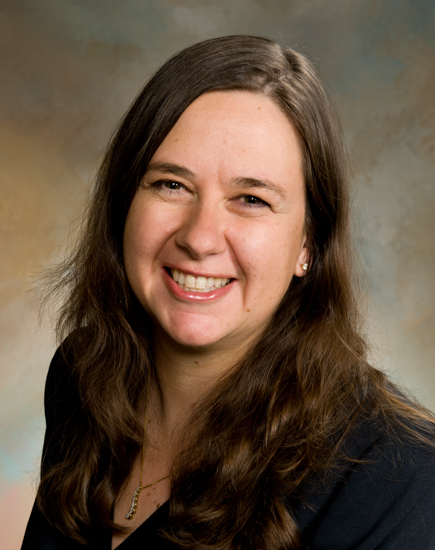Phytoplankton ecophysiology, physiological adaptation, photosynthesis, biological oceanography, biochemistry and biophysics, molecular biology, plant physiology, evolution (look around the website for more specific information).
Antonietta S. Quigg
Regents Professor
Department of Marine Biology

"There is no impossible. The word itself says "I'm possible."
-Unknown
Learn more about Antonietta S. Quigg
- Get To Know
Antonietta S. Quigg
What in your life drew you to your current field of study?
I was the child that always asked "why!" At university, I knew I wanted to do marine biology, but no such course or track was available. Classes in biology, biochemistry and chemistry were my favorites. After graduating, I began working in a laboratory that conducted research on phytoplankton, microscopic photosynthetic organisms that fueled the planet with oxygen billions of years ago and are at the base of all food webs. I enjoy examining how they respond to environmental stressor's, including eutrophication, oil spills, nanomaterials, but also how climatological factors such as droughts, floods and storms alter their activity. I have the privilege to work with amazing students, postdoc's and staff in my laboratory and those of my colleagues. They inspire me each and every day. :) I am also able to travel the world and work and learn from talented and gracious people. Today I am the scientist that asks why!
What is your teaching philosophy?
Teaching remains both one of my greatest challenges and one of the most rewarding aspects of my position. I endeavor to inspire students with my enthusiasm for the subject matter, foster critical-thinking and decision-making abilities with examples and innovative testing approaches as well as encourage students to become active and competent learners outside the classroom. At a campus dedicated to marine studies, undergraduates arrive eager to learn about marine mammals and fisheries science, but rarely consider the role of phytoplankton and marine plants (seaweeds, seagrasses, marshes) as the base of food webs. Teaching Marine Botany, a core course taken predominately by juniors and seniors, is my chance to bring them towards the “light”. By blending traditional and contemporary topics (e.g. eutrophication, climate change, invasive species) I provide students with tangible examples from their daily lives. This is often when the light bulbs are triggered, and I will pause lecturing to talk/debate/stimulate students along a line that has clearly caught at least some of their attention. Part of my philosophy is to also lead by example: hard work, dedication and persistence in performing of research and presentations, participation and publication, as key for success in science. The other part is participation: my students and I have a strong bond forged from many days at sea (>100), as well as time in the field and laboratory. One of the advantages to being on a small campus is that teaching-related activities are indeed not limited to the classroom, but occurs in the hallways, offices and open spaces around campus.
What do you hope your students gain from studying or working with you?
Albert Einstein said "If we knew what we were doing, it wouldn't be called "research" and Thomas Edison said "There are no rules here. We are trying to accomplish something". I hope students studying and working with me will gain confidence to ask questions (big, small, odd, bright, dumb), patience and persistence to experience the joys and challenges of being a scientist, and join me in my quest to be a life long learner. In my lab, research is not done in isolation. We are like a family unit - we work together, we celebrate each others successes, but we also standby and support each other through difficult situations.
What are you passionate about in your personal life?
Family, friends, food and travel :)
- Expertise
- Education
Ph.D. Biological Sciences, Monash University, Australia, 2000
B.S. Biochemistry, Honors, La Trobe University, Australia, 1990
B.S. Biochemistry and Chemistry, La Trobe University, Australia, 1989 - Publications
- Graduate Students
Contact Info
Antonietta S. Quigg
Regents Professor
Department of Marine Biology
quigga@tamug.edu
Phone: +1 (409) 740.4990
Fax: +1 (409) 740.5001
Website
Google Scholars Page
ResearchGate Page